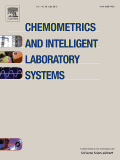
CHEMOMETRICS AND INTELLIGENT LABORATORY SYSTEMS
Scope & Guideline
Catalyzing advancements in analytical methods and intelligent technologies.
Introduction
Aims and Scopes
- Methodological advancements in chemometrics:
The journal emphasizes novel statistical techniques and methodologies for data analysis that enhance the reliability and interpretability of chemical data. - Integration of machine learning with chemometric techniques:
A significant focus is on the use of machine learning algorithms to improve predictive modeling and data classification in chemical and biological contexts. - Applications in drug discovery and biomedical research:
Many studies explore the role of chemometrics in drug development, including predictive modeling for drug interactions and biomarker identification. - Environmental and food safety applications:
Research often addresses the use of chemometrics in monitoring environmental pollutants, food quality, and safety assessments. - Innovative sensor technologies and data acquisition methods:
The journal promotes research on new sensor technologies, including non-invasive and real-time monitoring systems, and their integration into chemometric frameworks.
Trending and Emerging
- Deep learning and advanced machine learning applications:
There is a significant increase in the application of deep learning techniques and advanced machine learning algorithms for data analysis, reflecting the need for powerful tools to handle complex datasets. - Integration of multi-omics data in biomedical research:
The trend towards integrating various omics data (genomics, proteomics, metabolomics) for comprehensive analysis in biomedical studies is on the rise, showcasing the journal's commitment to cutting-edge research. - Real-time and non-invasive monitoring technologies:
Emerging studies focus on developing real-time monitoring systems and non-invasive techniques for assessing chemical processes and biological markers, indicating a shift towards practical applications in industrial and clinical settings. - Sustainability and environmental monitoring:
Research addressing sustainability, environmental impact assessments, and monitoring of pollutants has gained traction, reflecting a broader societal concern for environmental health and safety. - Explainable AI in chemometrics:
As machine learning models become more complex, there is a growing emphasis on explainability and interpretability of AI-driven chemometric models to ensure transparency in results and decisions.
Declining or Waning
- Traditional statistical methods without machine learning integration:
There is a noticeable decline in studies relying solely on conventional statistical approaches, as the focus shifts towards more sophisticated machine learning techniques that provide greater predictive power. - Basic chemometric applications in limited contexts:
Research that applies chemometric techniques in overly simplistic or narrow contexts is decreasing, as the field moves towards more complex, integrative applications that address multifaceted problems. - Overly theoretical studies without practical applications:
The journal has seen fewer purely theoretical papers that lack practical applications or case studies, with a preference for research that demonstrates real-world relevance and utility.
Similar Journals
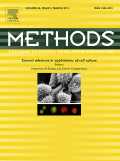
METHODS
Exploring the forefront of research techniques.METHODS is a premier journal published by Academic Press Inc Elsevier Science, dedicated to advancing the field of Biochemistry, Genetics, and Molecular Biology. With an ISSN of 1046-2023 and E-ISSN 1095-9130, this distinguished journal has established itself as a vital resource since its inception in 1990, providing high-quality research articles and methodological insights crucial for both seasoned researchers and students alike. The journal ranks in the Q1 category for miscellaneous areas within Biochemistry and Genetics, and maintains a Q2 ranking in Molecular Biology, reflecting its impact within the scientific community, evidenced by Scopus rankings that place it in the top 20% of its field. METHODS offers a platform for showcasing innovative research methods and their applications, contributing significantly to the development of new technologies and analytical techniques. Though not an open-access journal, it remains a highly regarded publication that assures readers of rigorous peer review and academic integrity, making it an essential addition to any serious researcher's library.
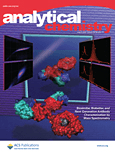
ANALYTICAL CHEMISTRY
Driving Excellence in Analytical ResearchANALYTICAL CHEMISTRY, published by the American Chemical Society, is a leading journal in the field of analytical chemistry, with a significant impact factor reflecting its reputation and scholarly influence. With an impressive ranking of 14th out of 156 in its category, placing it in the 91st percentile among its peers, this journal is essential for researchers, professionals, and students alike who are looking to stay at the forefront of developments in analytical techniques and methodologies. Established in 1947, ANALYTICAL CHEMISTRY covers a broad range of topics within the discipline, all aimed at advancing the scientific community's understanding of complex chemical systems. Although currently not an Open Access journal, its rigorous peer-review process ensures the publication of high-quality research aimed at significant innovations in the analytical field. With its publication spanning up to 2024, it continues to be a valuable resource for those seeking to enhance their research and contribute to the global discourse in analytical chemistry.

SLAS Technology
Exploring the Future of Medical Laboratory and Computational ScienceSLAS Technology, published by Elsevier Science Inc., stands at the forefront of innovation in the fields of medical laboratory technology and computer science applications. With an ISSN of 2472-6303, this esteemed journal has gained recognition for its contribution to advancing research and technology in the systematic study from 2016 to 2024. The journal currently holds a commendable Q2 ranking in medical laboratory technology and a Q3 classification in computer science applications, illustrating its significant impact and relevance, particularly in the health professions where it ranks #4 of 41 in its field with a notable 91st percentile score. Offering an open access model, SLAS Technology ensures wide dissemination of groundbreaking advancements and methodologies, making it a vital resource for researchers, professionals, and students alike. With its interdisciplinary approach to key technological issues, SLAS Technology positions itself as an essential platform for those dedicated to pioneering solutions in laboratory science and computational technologies.
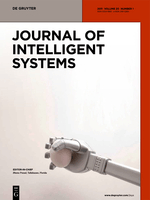
Journal of Intelligent Systems
Connecting Ideas, Inspiring Intelligent SolutionsThe Journal of Intelligent Systems, published by DE GRUYTER POLAND SP Z O O, is a premier open access journal that has been at the forefront of advancements in the fields of Artificial Intelligence, Information Systems, and Software Engineering since its inception in 1991. With a commitment to disseminating high-quality research, the journal has been recognized in the 2023 category quartiles as Q3 in these critical areas, reflecting its relevance and impact in the academic community. The journal serves as a vital platform for researchers, professionals, and students interested in the evolving landscape of intelligent systems, offering insights into innovative methodologies and applications. As an open access publication since 2020, it ensures that research is readily available to a global audience, fostering collaboration and engagement within the scientific community. With a Scopus rank in the 65th to 69th percentiles across its categories, The Journal of Intelligent Systems continues to contribute significantly to the discourse on intelligent technologies and their implications for the future.
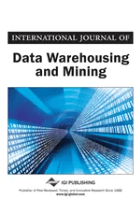
International Journal of Data Warehousing and Mining
Unlocking the Future of Data ManagementInternational Journal of Data Warehousing and Mining, published by IGI Global, is a vital resource in the field of data management and analytics, catering to researchers, professionals, and students alike. With ISSN 1548-3924 and E-ISSN 1548-3932, this journal has been at the forefront of disseminating pioneering research since its inception in 2005 and will continue to do so through 2024. Despite its current categorization in the Q4 quartile for Hardware and Architecture as well as Software, and its Scopus rankings, the journal aims to foster innovation within the domains of data warehousing, data mining, and their applications across various sectors. The absence of an open access option does not diminish its significance; rather, it ensures that the journal maintains rigorous peer-review standards, providing high-quality research outputs that contribute to ongoing discussions and advancements within the field. Researchers and practitioners looking to stay updated on the latest trends and methodologies will find the International Journal of Data Warehousing and Mining an indispensable tool in their academic and professional endeavors.
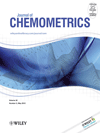
JOURNAL OF CHEMOMETRICS
Transforming Data into Discoveries in ChemometricsJOURNAL OF CHEMOMETRICS is a prestigious journal published by Wiley that has been a cornerstone in the fields of analytical chemistry and applied mathematics since its inception in 1992. With an ISSN of 0886-9383 and an E-ISSN of 1099-128X, this journal occupies a notable position, reflected in its Scopus rankings where it holds the 90th rank in Applied Mathematics and the 56th rank in Analytical Chemistry. The journal, based in the United Kingdom, spans a converged publication timeline through 2024, meticulously exploring the interplay between chemical data analysis and mathematical methodologies. Though currently not open access, it offers essential insights through high-quality research articles that significantly contribute to advancing the understanding of chemometric techniques and their applications. With an impact factor demonstrating robust academic recognition, the JOURNAL OF CHEMOMETRICS serves as an invaluable resource for researchers, professionals, and students aiming to excel in the ever-evolving landscape of chemical data interpretation.

CHINESE JOURNAL OF ANALYTICAL CHEMISTRY
Empowering Research through Analytical InsightsCHINESE JOURNAL OF ANALYTICAL CHEMISTRY, published by SCIENCE PRESS in China, stands as a prominent platform in the field of analytical chemistry since its inception in 1989. With its ISSN 0253-3820 and E-ISSN 1872-2040, the journal maintains a vital role in disseminating empirical research and innovative methodologies, contributing to the advancement of analytical techniques and their applications. The 2023 Scopus ranking positions the journal in the third quartile (Q3) within its category, reflecting a respectable standing among its peers. Researchers, professionals, and students alike engage with a broad range of topics, from instrumental analysis to environmental monitoring, each aiming to foster further scientific inquiry. Although it does not currently offer Open Access, the journal's rich repository of knowledge continues to be an essential resource for those in the analytical chemistry community, with an enduring commitment to scientific excellence and collaboration.

LCGC EUROPE
Advancing chromatographic science for a brighter tomorrow.LCGC EUROPE is a prominent journal dedicated to the field of analytical chemistry, specifically highlighting the latest trends and innovations in chromatographic techniques. Published by MJH Life Sciences, this journal has served as a valuable resource for researchers, professionals, and students interested in the nuances of laboratory practices and the advancement of instrumentation. Although LCGC EUROPE ceased its coverage in Scopus from 2018, it has maintained a significant influence within the community, evidenced by its Scopus rank of 90/114 in Analytical Chemistry, placing it in the 21st percentile. With its inception dating back to 1996, the journal provided essential insights and peer-reviewed articles, fostering a rich understanding of chromatographic science. While the journal is not currently open access, it remains an integral part of the literature for anyone engaged in the analytical chemistry landscape, especially as it pertains to laboratory methodologies and innovations.

Advances in Data Analysis and Classification
Charting New Territories in Data ClassificationAdvances in Data Analysis and Classification is a premier journal published by SPRINGER HEIDELBERG, focusing on the dynamic intersections of applied mathematics, computer science applications, and statistics. Established in 2007, this journal has rapidly gained recognition in the academic community, evidenced by its placement in the Q2 quartile across multiple categories in 2023, including Applied Mathematics and Statistics and Probability. With a strong Scopus ranking, where it stands 68th among 278 in Statistics and Probability, and 190th among 635 in Applied Mathematics, the journal serves as a platform for interdisciplinary research and innovation in data analysis techniques. This journal not only offers a rich repository of scholarly articles but also fosters the dissemination of cutting-edge methodologies and their practical applications. Researchers, professionals, and students alike will find invaluable insights relevant to their work and studies, reinforcing the journal's critical role in advancing knowledge and practices in data science and analysis.
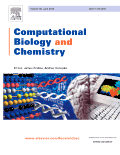
COMPUTATIONAL BIOLOGY AND CHEMISTRY
Pioneering Solutions for Tomorrow’s Biological Challenges with Computational TechniquesCOMPUTATIONAL BIOLOGY AND CHEMISTRY is a distinguished academic journal published by Elsevier Science Ltd, focusing on the dynamic intersection of computational biology, biochemistry, and chemistry. With an ISSN of 1476-9271 and an E-ISSN of 1476-928X, this journal is committed to disseminating high-quality research that employs computational techniques to solve complex biological and chemical problems. As of 2023, the journal holds a substantial impact factor reflecting its significance and rigorous peer-review process, categorized in the Q2 quartile for both Computational Mathematics and Organic Chemistry, alongside Q3 classifications in Biochemistry and Structural Biology. With a continuous publication history spanning from 2003 to 2024, it serves as a critical resource for researchers, professionals, and students alike. The journal offers various open access options, ensuring that vital research findings are accessible to a global audience, further enhancing collaboration across disciplines. Engage with cutting-edge studies and contribute to the evolving landscape of computational methodologies in the life sciences through this esteemed publication.